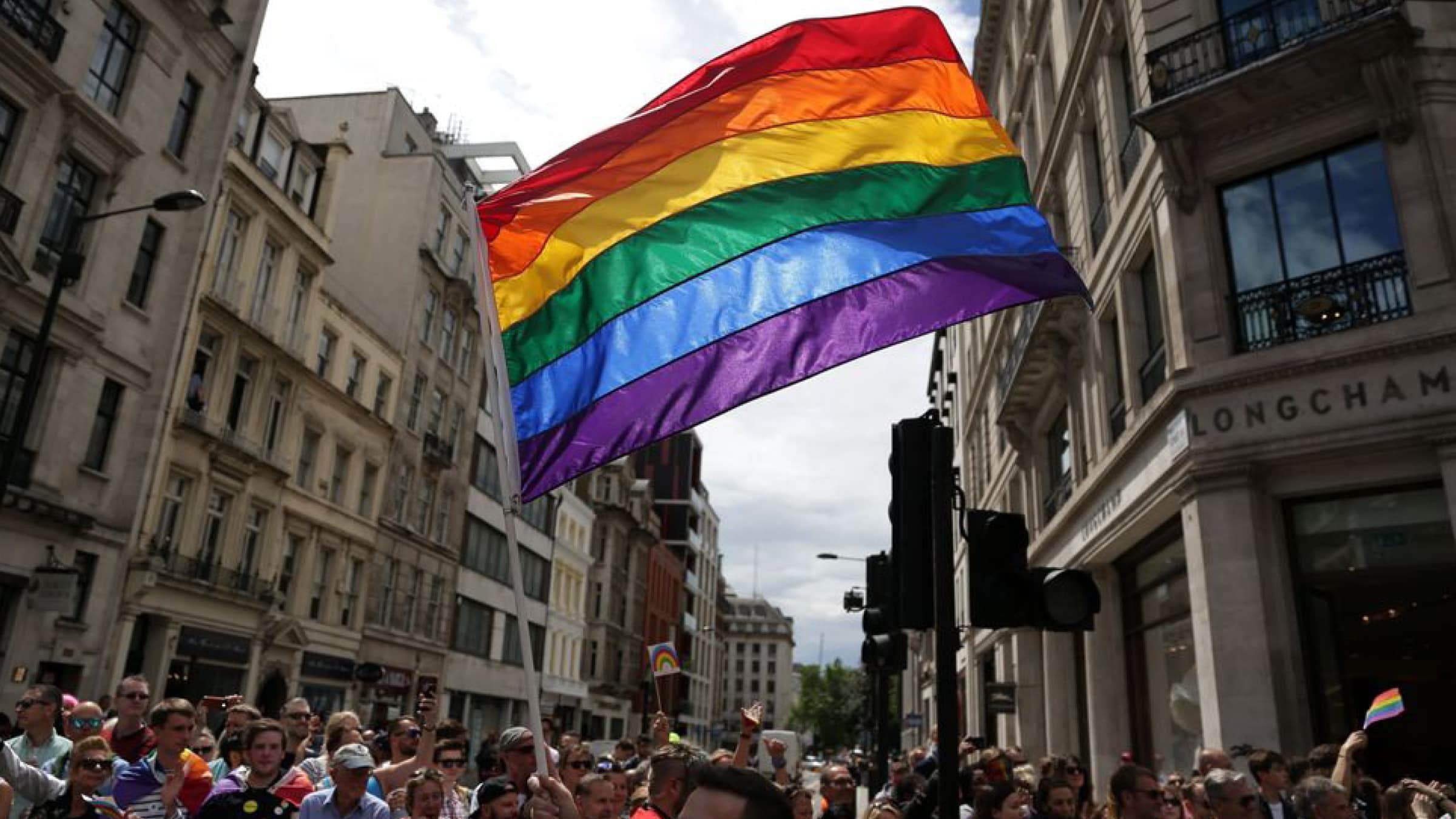Only 32% of LGBTQIA+ Brits feel safe where they live, new survey finds

Less than half of LGBTQIA+ people in the UK would say they feel safe where they live, a daunting new survey has found. Whether it be out and about, clocking into work or at home, queer Brits are far less likely than their straight, cis counterparts to feel safe in the places that they should.
Just Like Us, an LGBTQIA+ young people’s charity found that 32% of LGBTQIA+ young people feel safe in their local area compared to 43% of straight people – an alarming statistic in and of itself. Meanwhile, only six in 10 queer people aged between 18 and 25 feel safe at home, which is less than the 75% of non-LGBTQIA+ people who feel the same.
For the majority of the queer young people surveyed, work is no different. Less than half (49%) feel safe at their place of work, in contrast to 60% of straight people.
The data shows that increasingly for LGBTQIA+ Brits each day is just another day in which intimidation and violence are considered as a constant threat.
The charity’s report also found that close to three-quarters (72%) of trans young adults have faced verbal abuse in the last year, more likely than any other part of the LGBTQIA+ community to face discrimination. They were followed by non-binary (70%) and asexual people (68%).
Around a quarter (26%) of LGBTQIA+ and non-LGBTQIA+ people have been the victim of physical abuse, the poll found.
The findings come less than a week after both the UN and a top European LGBTQIA+ rights group offered a stark warning about LGBTQIA+ rights in the UK. Victor Madrigal-Borloz, the UN independent expert on protection against violence and discrimination based on sexual orientation and gender identity, said the ‘abusive’ language used by politicians is curdling into anti-LGBTQIA+ violence.
“All of this is attributed – by a wide range of stakeholders – to the toxic nature of the public debate surrounding sexual orientation and gender identity,” he said in a statement on 11th May.
And when it comes to the UK’s current and previous leaders, both Boris Johnson and Rishi Sunak were recently accused by the International Lesbian, Gay, Bisexual, Trans and Intersex Association (ILGA-Europe) of “causing serious damage” to LGBTQ+ rights.
Johnson has regularly publicly supported moves that marginalise members of the LGBTQ+ community, such as plans (since-reversed) to remove trans people from a ban on conversion therapy – and his support of banning trans women from elite sports. Johnson also refused to apologise for homophobic comments he made in a 1998 Telegraph column where he referred to gay men as “tank-topped bumboys.”
Sadly, as we all know, the anti-trans ideologies haven’t left Number 10 since Johnson’s resignation, with Sunak picking up where he left off. The new Prime Minister has previously stated that “trans women are not women” and that equality law should clarify that “sex means biological sex rather than gender.”
Responding to Sunak’s comments, Jane Fae, director of TransActual and chair of Trans Media Watch, told Open Democracy: “If you think that, as a politician, you need to terrorise a minority community, you are not fit to be an MP – let alone a minister or prime minister.”

